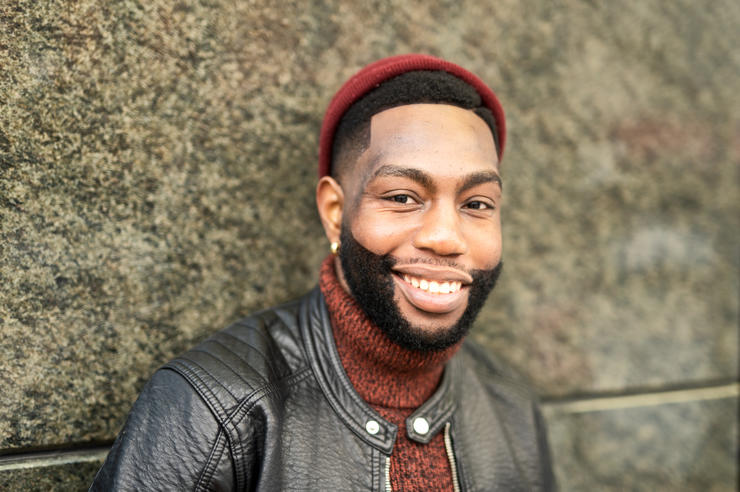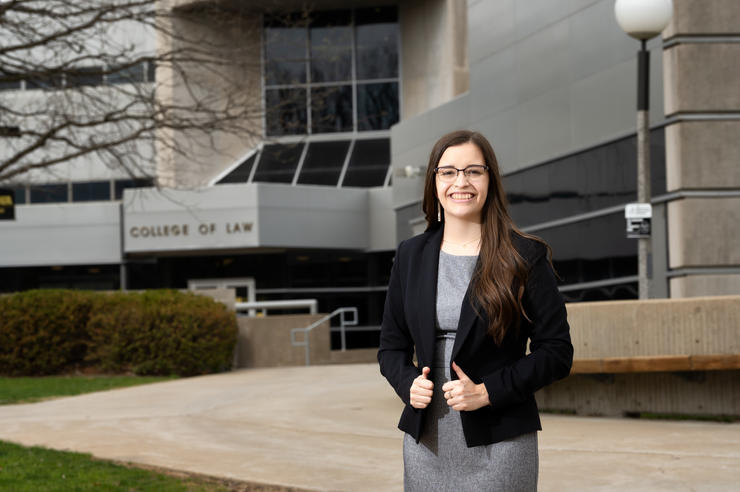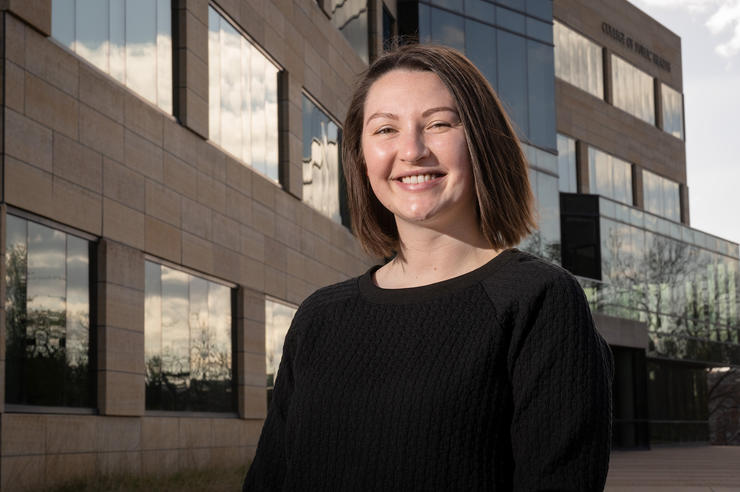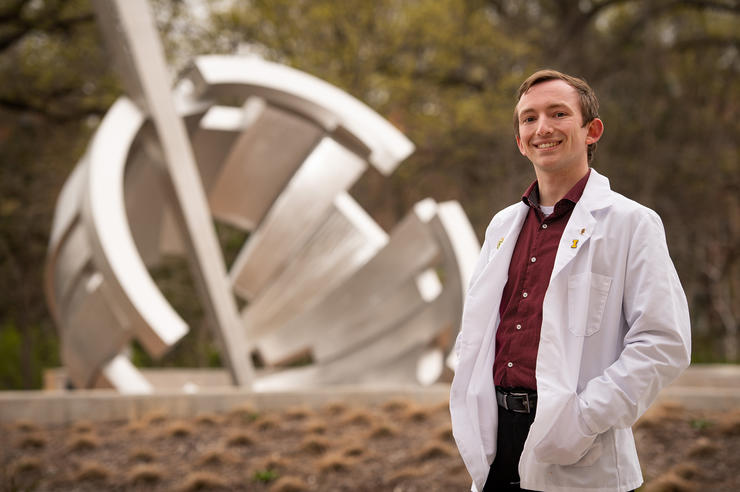Playing a role in improving health
The University of Iowa is synonymous with health care. Consider UI Health Care, the state’s only comprehensive academic medical center, with an adult tertiary care hospital and children’s hospital and a network of 200-plus outreach clinics and programs. Improving human health is a focus across our 11 colleges and numerous research institutes. Our alumni provide health care services in communities near and far.
The three graduates featured below exemplify the compassion and the drive of Iowa students. Whether they are developing lifesaving plans for elementary school staff and students, facilitating conversation about palliative care, or creating more realistic models of the spread of other infectious diseases, they yearn to make a difference in the world.
Nursing student saving lives in Van Meter

When a student at Van Meter High School tragically died from a food allergy in early 2020, school administrators turned to nurse Katie Hovda to develop a strategy so nothing like that would happen again.
Part of Hovda’s plan was to put together an anaphylaxis awareness campaign throughout the Van Meter School District so students, faculty, and staff could take steps to prevent it from happening again—and if it does, how to best respond. For that, she turned to University of Iowa nursing student Danielle Yonemura.
Yonemura was working at Van Meter, an Iowa community located to the west of the Des Moines metro area, as part of her public health rotation, and Hovda thought Yonemura would be good at a project like that.
“She’s a top-notch student, dedicated, and sees the big picture,” says Hovda, herself a 2002 graduate of the Iowa College of Nursing.
The educational campaign at Van Meter High School will include a video that will be shown to middle school and high school students during orientation each fall, along with a brochure to help train faculty and staff. The materials’ intent is to educate students about what to look for in someone experiencing an anaphylactic reaction, how to get help, and how to administer epinephrine using an EpiPen that the school keeps in stock. Yonemura has done most of the work on her own from her West Des Moines home to avoid unnecessary risk of exposure to COVID-19.
Yonemura, a single mom, started attending classes through Iowa’s RN-to-BSN program online in spring 2019 while still working full time at Planned Parenthood. While managing a job and parenthood with classes was an exercise in time management, she says the quality of the education she received from the Iowa faculty made the workload so much easier to handle.
“The teachers are really, really good,” she says. “There’s never been a time when I’ve struggled because they are so committed to work with the students to make sure you understand what they’re teaching.”
Danielle’s full story: Nursing student saving lives in Van Meter
Love of numbers fuels COVID-19 research
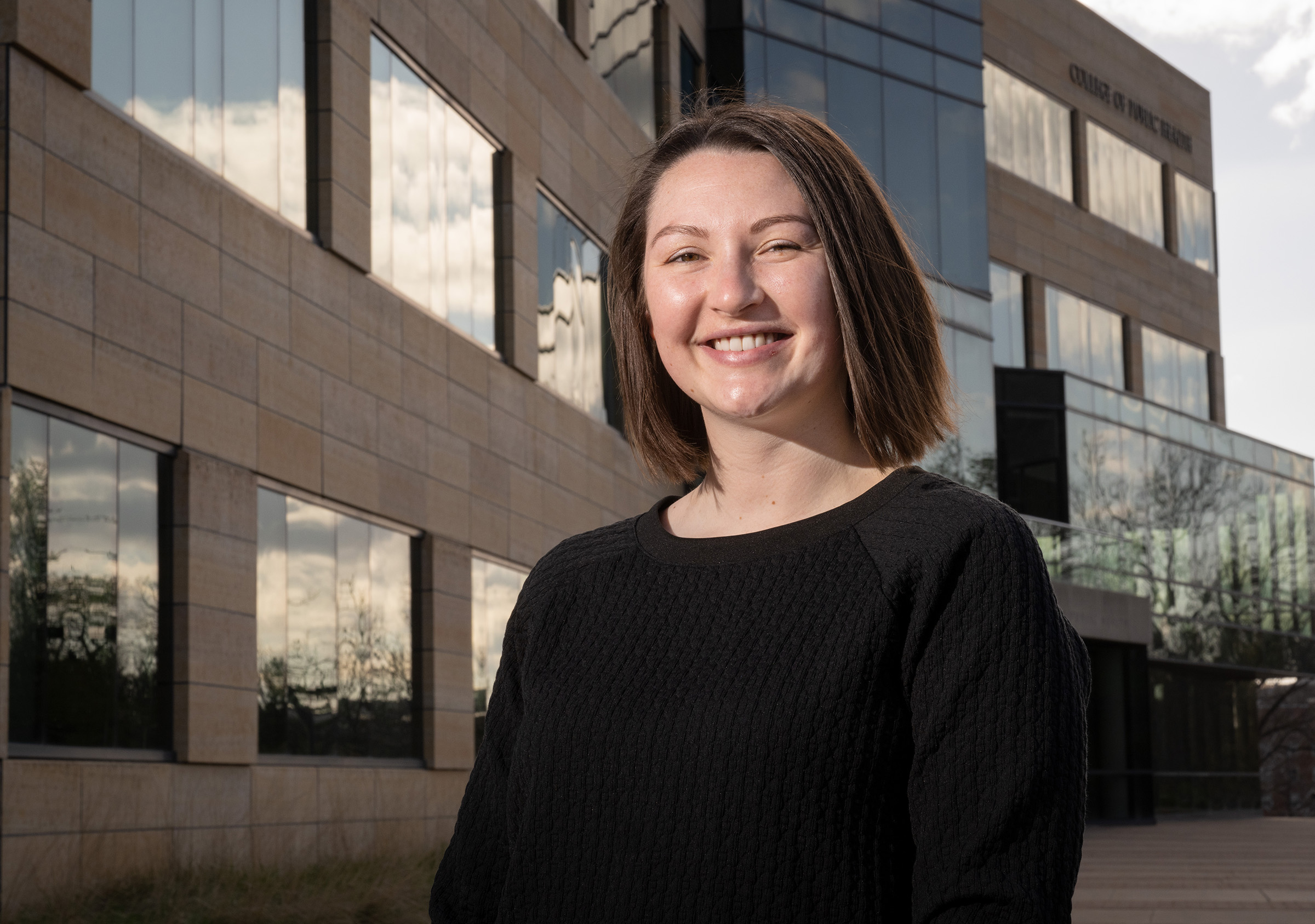
A passion for calculus coupled with an interest in public health led Caitlin Ward to an area of research that could hardly be more relevant today: creating more realistic models of the spread of infectious diseases.
Ward, an Iowa City native earning a PhD in biostatistics from the University of Iowa in May 2021, chose the area of study well before “mask up,” “quarantine,” and “social distance” became part of our daily lexicon. She had planned to study biochemistry in college and conduct cancer research, but a high school calculus class intrigued her and drew her to math and statistics—and eventually to biostatistics. The pandemic has shown her just how crucial a biostatistician’s work is.
“While I chose infectious disease modeling because it was interesting to me, you feel the urgency when you’re in a pandemic,” says Ward, who earned a master’s degree in biostatistics from Iowa in 2018. “The timing of the predictions is very important. A lot of people are relying on these models, and it really emphasized to me the importance of what I’m doing. It’s not just tinkering around with my computer—there are real implications to this work.”
In addition to completing her doctoral coursework, Ward has taught an introductory biostatistics course and contributed to the College of Public Health’s Biostatistics Consulting Center, where she performed analyses for researchers in a variety of disciplines, from brain imaging to nursing to student services.
Ward notched even more real-world experience in the summer of 2020 when she was part of a team of UI graduate students and faculty members assisting the Iowa Department of Public Health with COVID-19 modeling. She developed a web application to predict trajectories of coronavirus spread based on interventions such as mask mandates, and will build on that work during a two-year postdoctoral fellowship at the University of Calgary in Canada starting in August.
Ward says her campus experiences—and the biostatistics department in particular—have prepared her well for a successful career in academia once her fellowship is over.
“Sometimes in graduate school you can encounter a really competitive or cutthroat environment, but I felt like our department was the complete opposite of that. It was very supportive and collaborative,” she says. “You knew it was going to be challenging but also that we’d all get through it together. I feel very fortunate to have been part of that.”
Caitlin’s full story: Love of numbers fuels COVID-19 research
For Logan Mougin, pharmacy was meant to be
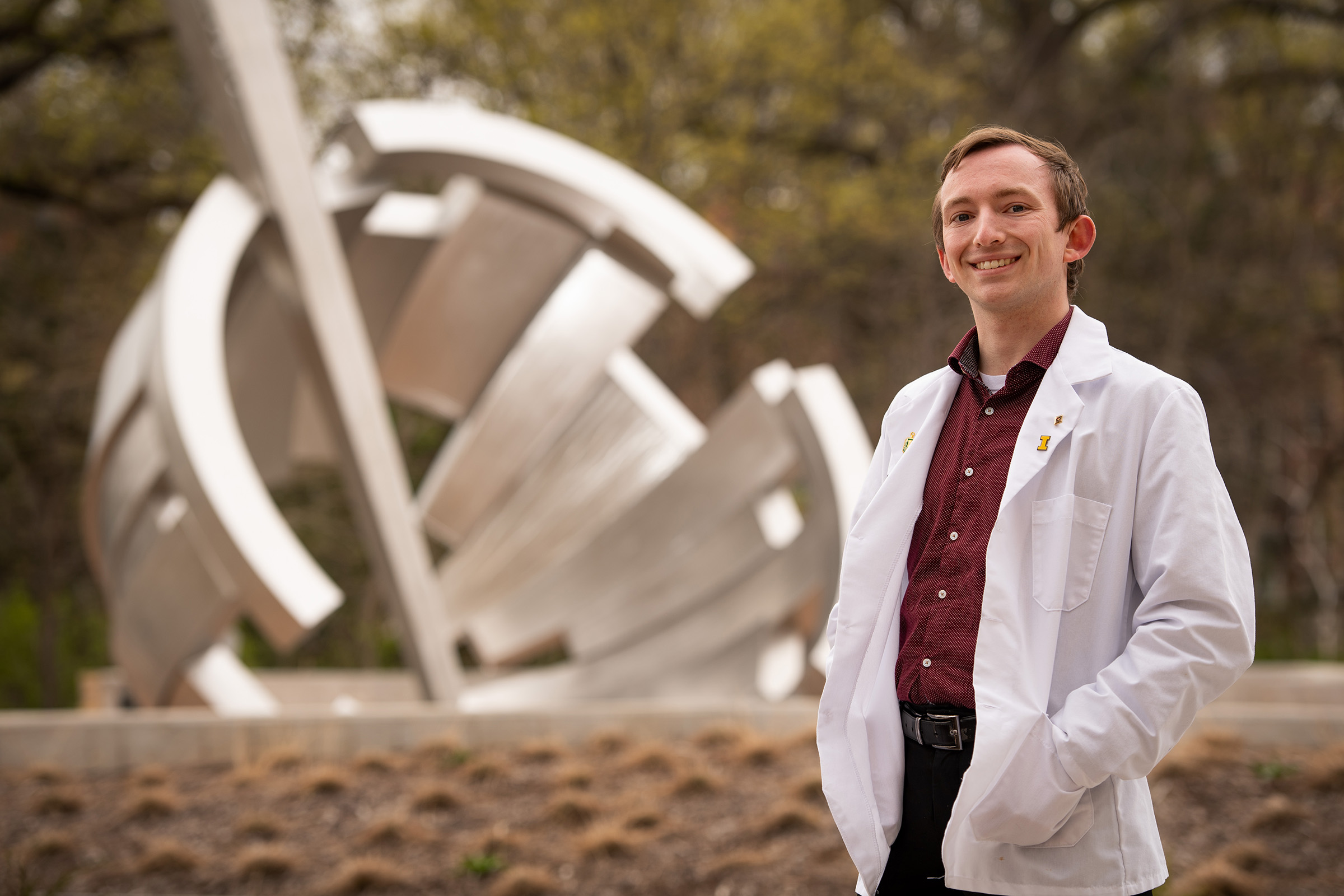
Logan Mougin comes from a family entrenched in the health sciences: His mother works in nuclear medicine, his father is a MRI technologist, an uncle is an orthopedic surgeon, and an aunt is a pharmacist.
“It seems everyone was always on call. They were always doing something important,” Mougin says. “That always interested me.”
Still, Mougin had to choose which field interested him the most. “I realized pharmacy was much more than I had thought,” he says. “I had always wanted to help people. But seeing pharmacists actually impact people’s lives and be important—I appreciated that. They seemed like real people doing real work to help people in a way that a lot of people don’t expect.”
His interest in pharmacy science intensified after he enrolled at Iowa and listened to College of Pharmacy Dean Donald Letendre welcome him and his student peers at the college’s white coat ceremony. “He really lit a fire under me during that speech that made me want to be more involved, to deepen my understanding of what pharmacy is and find a specialty in pharmacy that would give me a sense of purpose,” Mougin says.
Mougin’s sense of purpose crystallized around palliative care. In addition to his Doctor of Pharmacy, he will earn a certificate in palliative care. He got involved in the university’s Pain Management, Substance Use Disorders, Palliative Care student organization.
“They talked about subjects that we were not touching upon in our normal curriculum—topics such as substance use, issues beyond medications,” Mougin says. “I wanted to be part of an organization that was constantly talking about these issues, and I wanted to hold leadership roles so I could influence that and talk about subjects that I was passionate about.”
Like many Iowa pharmacy students, Mougin was involved in administering coronavirus vaccines, something he’s found especially satisfying.
“It feels good that we’re saving lives,” he says. “It’s a very physical thing that we’re doing. Some of the interventions, you can assume they’re helping, but you may not know about it until years later. But you know with the vaccines that this is helping someone right now in the moment.”
Logan’s full story: For Logan Mougin, pharmacy was meant to be
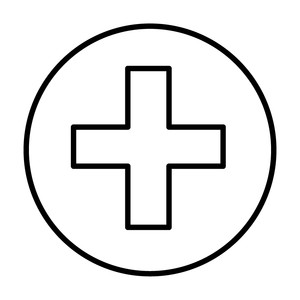
Learn more about Iowa’s leading programs in the health sciences and other areas.

